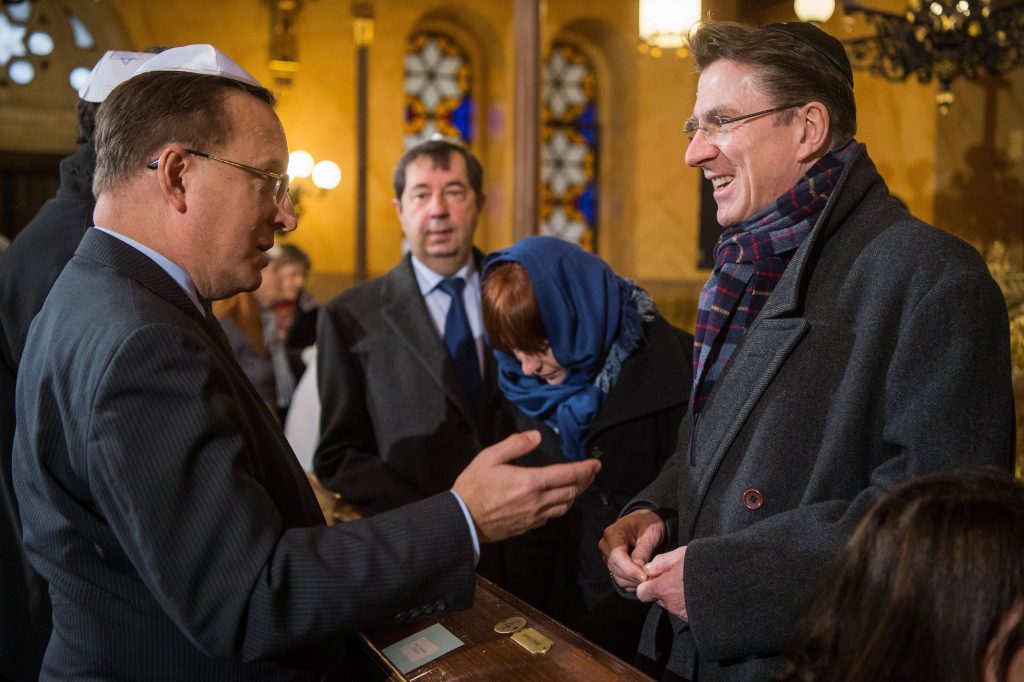Budapest ghetto liberation anniversary marked in Dohány Street Synagogue

A commemoration was held in Budapest’s Dohány Street Synagogue on Friday to mark the 74th anniversary of the liberation of the city’s ghetto.
Addressing the ceremony, Szabolcs Takács, state secretary at the PM’s Office, called the Holocaust “one of the heaviest burdens in the history of our nation, which we can never forget”.
Remembering the Holocaust is a “joint responsibility for us”, the state secretary said.
The Hungarian government will not tolerate hatred or any threat that would jeopardise “the unity and peace of the nation or Europe’s Jewish-Christian culture”, Takács said, noting that the government has declared “zero tolerance” for anti-Semitism.
He said Hungary’s Jewish community was Europe’s largest, and noted that the synagogue hosting the commemoration is the world’s second largest. “Jewish life is flourishing in Hungary,” he said, adding that Jewish festivals are organised on a regular basis and the government has contributed large funds to the renovation of synagogues and old Jewish cemeteries.

Tamás Ács, the head of Budapest’s Jewish community (BZSH), said that remembrance was an obligation for the descendants of survivors as well as to remind others of the inhumanity of the Holocaust and of the responsibility of perpetrators.
“All well-wishing Hungarians are expected to do the same, including historians, some of whom are likely to re-write or change documented facts,” he added.
The central ghetto of Budapest was established in an area between Dohány and Király Streets based on a decree by the interior minister on November 29, 1944. Between 70,000-80,000 Jews were crammed into 4,500 flats, which had been inhabited by 12,000 tenants before.
The ghetto was liberated by the Soviet Red Army on January 18, 1945.
Featured image: MTI
Source: MTI







